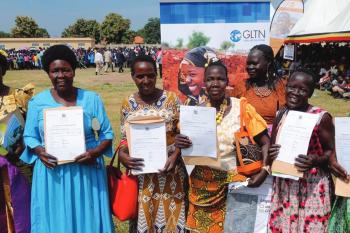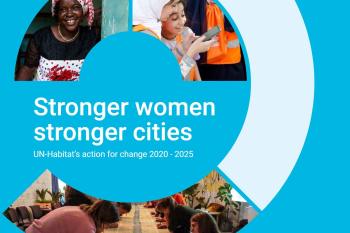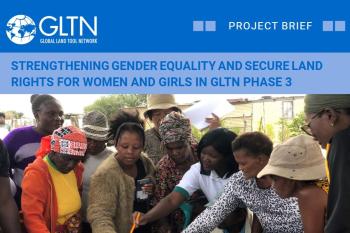
Read More
Gender Strategy for Land-at-Scale Uganda
Women’s Land Rights (WLRs) are fundamental human rights, foundational to gender equality and women’s dignity and instrumental in improving food security, effective climate action, poverty eradicati

The 'Understanding, preventing and solving land conflicts. A practical guide and toolbox' was prepared to practitioners who are confronted with land conflicts in the course of their work or are in a position to prevent them and/or include land governance as one pillar in post-conflict policies. It aims to broaden the understanding of the complexity of causes that lead to land conflicts in order to provide for better-targeted ways of addressing such conflicts. It also provides a number of tools with which to analyse land disputes. The successful analysis is seen as a vital step towards their eventual settlement. In addition, this guidebook discusses a wide variety of options and tools for settling ongoing land conflicts and for preventing new ones. The guide also includes a chapter on the role of land in (violent) conflict and peacebuilding and it presents a broad range of good practices from a project level. The guide provides useful gender-sensitive training material that can be used for specific lectures on land disputes as well as in general courses on land administration and land management. For this purpose, a complementary training manual has been developed that enables trainers to prepare lectures and seminars on the issue.'

Women’s Land Rights (WLRs) are fundamental human rights, foundational to gender equality and women’s dignity and instrumental in improving food security, effective climate action, poverty eradicati

This publication presents a summary of UN-Habitat’s gender equality impact over the past five years, in line with the Beijing reporting cycle.

GLTN’s institutional commitment to gender equality and secure land rights for women and girls has been at the core of its work since inception in 2006.